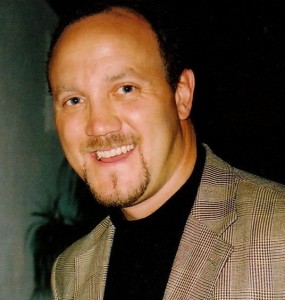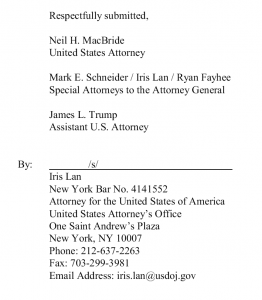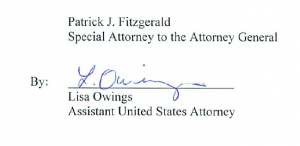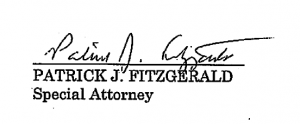I guess John Brennan has figured out that the effort to roll out the Steely Decider campaign has backfired.
How else to explain the almost unheard of tactic from the NYT of accusing those who drew very logical conclusions from its own article of engaging in gossip?
For example, the NYT complains that people read these passages:
This was the enemy, served up in the latest chart from the intelligence agencies: 15 Qaeda suspects in Yemen with Western ties. The mug shots and brief biographies resembled a high school yearbook layout. Several were Americans. Two were teenagers, including a girl who looked even younger than her 17 years.
[snip]
“How old are these people?” he asked, according to two officials present. “If they are starting to use children,” he said of Al Qaeda, “we are moving into a whole different phase.”
It was not a theoretical question: Mr. Obama has placed himself at the helm of a top secret “nominations” process to designate terrorists for kill or capture, of which the capture part has become largely theoretical. He had vowed to align the fight against Al Qaeda with American values; the chart, introducing people whose deaths he might soon be asked to order, underscored just what a moral and legal conundrum this could be.
And concluded that, “President Obama really add[ed] a 17-year-old girl to the counterterrorism “kill list.”
The NYT complains that people read this passage:
David Axelrod, the president’s closest political adviser, began showing up at the “Terror Tuesday” meetings, his unspeaking presence a visible reminder of what everyone understood: a successful attack would overwhelm the president’s other aspirations and achievements.
And concluded that “his political adviser, David Axelrod, really participate[d] in discussions of which terrorist suspects should be targeted in drone strikes.”
In its effort to suggest readers have drawn unfair conclusions from what I assume was NYT’s deliberately vague reporting, it clings to that very ambiguity (ambiguity, I’ll add, which made the article far more dramatic and therefore more widely read).
The article said that Mr. Obama knew he might be asked to add such terrorism suspects to the kill list — but it did not say he had been asked to do it in this case. Nor did it say that he had done so.
Ah, but the article also didn’t say he hadn’t done so, either, did it? So whose fault is it that readers drew precisely the conclusions that the narrative and emphasis of the article created?
The NYT is so intent on impugning those who drew very logical conclusions from its vague reporting that it made this laughably inaccurate claim:
On the left, too, there were thousands of posts with inaccurate claims about what The Times had reported. Many picked up what a blogger for the conspiracy-minded PrisonPlanet.com wrote on the day the article appeared: that The Times had said Mr. Obama had placed several Americans and a 17-year-old girl, all with alleged links to the branch of Al Qaeda in Yemen, on the kill list.
I’m not sure what is most offensive about this. That a newspaper complaining that readers drew inaccurate conclusions from its vague reporting made an inaccurate claim that a libertarian is a lefty? That, in an effort to impugn Alex Jones the NYT decided to label him as a lefty?
Or that neither here nor in the larger article did the NYT breathe one word of that American 16-year old who was killed in a drone strike, Abdulrahman al-Awlaki. Even if this particular 17-year old girl weren’t ever put on the kill list (though she may well have been–the NYT effectively commits a journalistic Glomar by neither confirming nor denying it here), an American teenager was, one whose death goes unmentioned.
I refrained from noting the following when I first wrote about this article, but this odd attempt to ensure the Steely Decider campaign doesn’t backfire makes it pertinent.
First, remember what Scott Shane said when he got called on letting a senior Administration official hide behind anonymity to insinuate those doing independent reporting on drone strikes were al Qaeda sympathizers?
Shane, in written responses to a number of questions that Nieman Watchdog posed to him about the two articles, said he believes this particular quote was not necessarily directed at BIJ, calling it “ambiguous, and I wish I had been able to clarify it.” He added: “Based on all my reporting over the last couple of years, I believe U.S. government officials have in mind not BIJ or other journalists as sympathizers of Al Qaeda but militants and perhaps ISI officers who supply what they consider disinformation on strikes to journalists.”
Apparently, he was helpless in the face of the ambiguity that allowed sources–probably the same one demanding he go back and counter the blowback from this article–to insinuate independent journalism amounted to helping terrorism. But now, he sees fit not to clear up his own ambiguities, but rather to attack those who drew fair conclusions from those ambiguities.
The story must always mean what is most convenient for John Brennan.
Then there’s this. The Administration is currently prosecuting John Kiriakou for leaking information about the torture program John Brennan once championed. The very core of their case–not to mention any pretense that the government didn’t use National Security Letters to get journalists’ sources to identify leads in this case–is a Scott Shane story for which, he said, he had two dozen sources. One of the very first things Kiriakou’s lawyer is going to do, I’d wager, is demand to know who the other 23 sources for the story are so he can prove that some of those people–people like Buzzy Krongard–knew that Deuce Martinez was involved in the torture and interrogation program.
Now, as a threshold matter, the fact that Shane might have been–and may well be–under DOJ surveillance for a leak investigation suggests that every source who spoke to him for the drone story would have heightened awareness of the risk of speaking out of turn. That sucks. It goes to the core of the problem of Obama’s war on leakers, not to mention their claimed authority to use NSLs to get journalist contact information in national security investigations. But because of this Administration’s decision to prosecute a guy who allegedly identified torturers, Scott Shane’s sources–at least those that say things the Administration doesn’t want out there, mind you–may be in a precarious position. Yet people spoke to Shane for this blockbuster article nevertheless.
Furthermore, Shane undoubtedly knows that the Kiriakou prosecution–particularly those 23 sources sitting between John Kiriakou and a fair trial–could get him in a bigger pickle than James Risen is currently in. This makes Shane’s awkward position even worse. DOJ may well get to decide whether to let Kiriakou go free or risk a judge allowing Kiriakou’s lawyer to demand a list of Shane’s sources from 2008.
Now, I’m not blaming Shane on this front. I’m just pointing out what kind of ancillary power the Administration gets from its leak investigations. It may well be that that’s not playing a part here at all. But I do think it worth noting that Shane–and the NYT generally–may be in a position where the same people hiding behind all this ambiguity will have some say over what kind of headaches Shane will face for once using Kiriakou as a source.
 Today, the IRS awarded whistleblower Bradley Birkenfeld $104 million to reward him for having exposed UBS’ methods of helping US tax cheats hide their loot, tax free, in Switzerland.
Today, the IRS awarded whistleblower Bradley Birkenfeld $104 million to reward him for having exposed UBS’ methods of helping US tax cheats hide their loot, tax free, in Switzerland.


